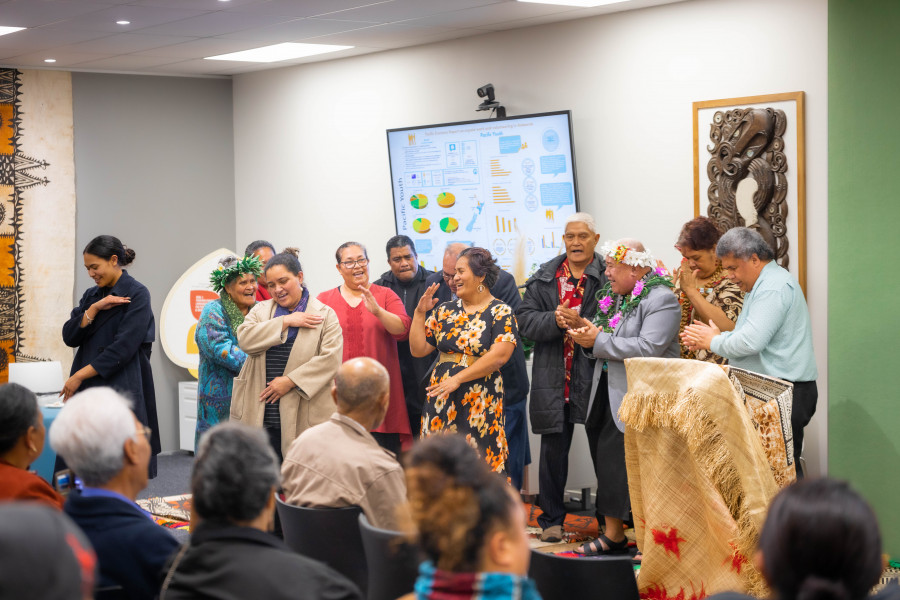Research shows significant Pacific contribution to volunteering
Research shows significant Pacific contribution to volunteering

The Pacific Economy Research Report recognises and celebrates the contribution of Pacific communities to volunteering and unpaid work.
The newly launched Pacific Economy Research Report has found New Zealand’s Pacific peoples not only give their time, but also their cultural knowledge, technical expertise, practical and logistical resources, money, and social support as unpaid work and volunteering.
In 2018, the Treasury reported Pacific peoples spend approximately 27,000 hours per week on volunteer labour in their report on the New Zealand Pacific Economy, the first ever of its kind.
Speaking at the report launch at the Ministry for Pacific Peoples (MPP) Northern Office in Manukau on August 6, Pacific Peoples Minister Aupito William Sio says the objective of the new report has been to unpack Pacific concepts of volunteering, wealth and wellbeing and the Pacific contribution to the wider New Zealand society and economy, as highlighted in the Treasury report.
To gather data, Minister Sio says the Ministry’s Research and Evaluation team undertook 27 focus group talanoa, 47 individual Talanoa and a national online survey in February 2021.
Two thousand participants stratified by age, gender, region, and nine Pacific ethnic communities and Pacific youth voices around Aotearoa, and a Pacific framework Kakala were used to produce an accurate illustration of unpaid work and volunteering.
Research findings has revealed 97 percent of Pacific peoples spend around 66,035 hours per week on unpaid work and volunteering, equating to an average of 33 hours per week per person.
Of this, 44 percent of Pacific peoples contributed a total of $2.4m of their own money to help others over four months, equating to an average of $161 per week per person.
Pacific peoples were also more likely to engage in volunteer and unpaid work if they were over the age of 25, had an annual income over $15,000, were inside the labour market, and had achieved a Bachelor’s degree or higher education.
“Thanks to this report, the New Zealand Government and public can see how Pacific peoples’ engagement in unpaid work and volunteering contributes significantly to the New Zealand economy: now and into the future,” Minister Sio says.
However, Pacific participants often did not recognise the meaning of volunteering because it is a natural thing for them to do.
“The current economic measurements of Pacific contributions to the New Zealand economy are underestimated due to cultural differences in defining and measuring unpaid work and volunteering,” Minister Sio says.
He adds, Pacific communities have also been significantly impacted by COVID-19 and the national lockdown in March 2020.
“The research report presented over half of the survey participants reported providing increased social support during lockdown, while nearly 40 percent of participants reported increased caregiving for the elderly, providing administrative support, and serving as a cultural leader.
“Pacific peoples will be essential to improving the social, cultural, financial, and environmental wellbeing of New Zealand in a post-COVID-19 environment,” he says.
It is hoped the findings of the report will recognise and celebrate the contribution of Pacific communities to volunteering and unpaid work.
